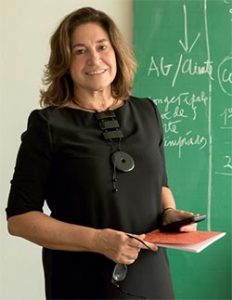 I am writing this text in the midst of the isolation we have been subjected to in the past few days by the pandemic that has plagued our planet, to a greater or lesser extent, in most countries.
I am writing this text in the midst of the isolation we have been subjected to in the past few days by the pandemic that has plagued our planet, to a greater or lesser extent, in most countries.
In Italy, where until now we rarely commented on the exhibitions at the Venice Biennale, approximately 12 thousand citizens died in the last 30 days. We all watched in horror the international scenes, typical of science fiction films. We read and heard daily a plethora of data and information about an unknown scourge, the COVID-19, which only comes close to the Black Death, in the Middle Ages, or the Flu Spanish, before World War I. Today and here, we are trying to minimize the numbers of human losses in Brazil, collaborating with a quarantine that allows the least amount of infected people.
We are perplexed in our fragility to the cracks in an economic and political system that cannot be sustained when it comes to serving human beings equally. Who until a few days ago defended the minimum state, today recognizes in the Unified Public Health System (SUS) the only way out of crises of this magnitude. Scientists who at the beginning of the year were forced to stop their research thanks to the cut in grants and investments are now being requested at all times.
The coronavirus came against our daily virus.
In culture, where we already discussed cuts to incentive laws and watched the dismantling of various institutions, the pandemic poses a new challenge.
To date, March 31, 2020, all meetings and cultural activities have been canceled or postponed. The editions of the Art Basel fairs in Hong Kong and Basel closed; ARCO Lisbon; SP-Arte, in São Paulo; and arteBA, in Buenos Aires. The São Paulo and Mercosur Biennials were postponed, as well as the Manifesta13, in Marseille. The Berlin Biennial still has to announce whether it will be maintained in June.
The IFEMA Exhibition Center, where the traditional ARCO Madrid fair was held just a month ago, has just been transformed into a “hospital” with over a thousand beds for infected patients.
“The outlook is bleak for the country’s cultural sector,” said Manuel Fernandez-Braso, president of the Asociación de Galerías de Arte de Madrid.
Despite the anguish we experience, having to take care of ourselves and our peers, we had to find, in our daily lives, moments of reflection and work solutions so as not to fade.
For our team, this would be a moment of great celebration. In this edition # 50, the first of the year, ARTE!BRASILEIROS celebrates its 10th anniversary. Ten years where we defend the idea that art synthesizes transversal narratives and that, specifically in the work of art, the artist expresses his ability to move away from the world and perceive him as a subject. It contains your ideas and, certainly, your anxieties and those of your time.
In these years we have tried to portray the strength and diversity of contemporary Brazilian art, for Brazilians and for the world, in some of the themes that stood out in this period in a remarkable way: the defense of freedom and gender issues; the fight against racial discrimination, women’s segregation, economic, social and political oppression; migratory movements, freedoms, denouncing aggressions to the environment and the planet.
We also portray innovation in movement, in color, the search for new supports, experimentation, research of materials and stories.
To this end, we invested in a contemporary digital art and culture platform, capable of speaking both to academia and the market.
We created a huge network of national and international collaborators and our seminars brought together interlocutors from several countries.
We got here with a positive balance. More than a thousand subscribers to the printed magazine, close to 50 thousand organic and loyal followers on Instagram, in addition to a network of relationships and readers that surrounds around 80 thousand on the www.artebrasileiros.com.br portal
This year, if we manage to win COVID-19 and its aftermath, we will hold our VI International Seminar, scheduled for early October.
This edition, which brings a new graphic project, specially commissioned to the team of designers at Alles Blau Studio, had the ability to adapt to the difficulties of the moment. The work with the teams in the home-office, their interviews and reports, showed a very high degree of collaboration and competence on the part of everyone involved. Most of the texts were produced before the several postponements of exhibitions and biennials, but we chose to keep them, believing that better days will come.
We hope to find everyone healthy, and can imagine another moment, which will certainly require us to be born again.





